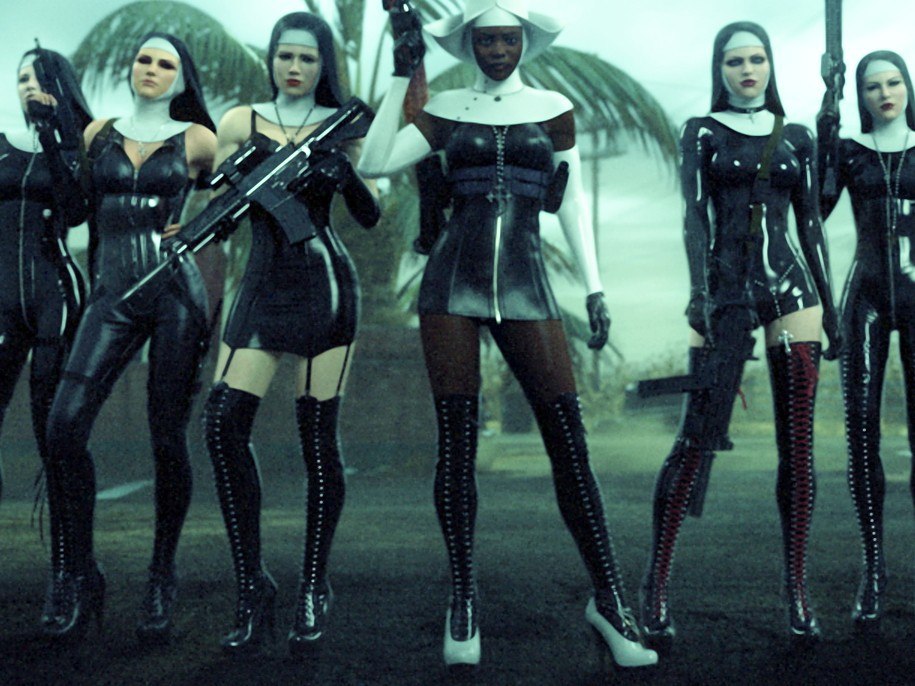Is It Time for Games to Get Serious?
Should more mainstream games push thematic boundaries and explore the murky depths of human nature?
In November 2009, Infinity Ward released Call of Duty: Modern Warfare 2 amid a flood of mainstream criticism surrounding the game's No Russian mission, an optional level that allows players to kill civilians. Most of the disapproval leveled at Infinity Ward questioned the studio's motivation for including the level: the studio was not, some argued, attempting to give players a meaningful insight into the moral consequences of war. They weren't attempting to make players feel uncomfortable, or demonstrate that video games should allow players to experience viewpoints distinctly outside their own. What Infinity Ward was doing, it was argued, was creating a controversy for the sake of a controversy--a hook to sell more games, get people interested.
Regardless of Infinity Ward's motivation for the No Russian mission, or how well it was executed, the studio's attempt at something different was an example of a rare moment in the mainstream AAA space. While the surrounding controversy played itself out in the mainstream media, the games industry was left to face a new kind of self-examination: Should more games attempt to explore the extent of human suffering? Are themes of rape, real-world violence, sexism, racism, genocide, and torture acceptable subjects for a mainstream AAA game to touch on? Does the nature of games, both as entertainment products and interactive experiences, prevent them from meaningfully exploring these issues?
One might be led to believe that if mainstream games could successfully explore more mature topics, controversies such as the one surrounding Modern Warfare 2 would no longer arise in the public arena. If mainstream games could prove instrumental both as entertainment products and as methods of exploring human nature in a way that could imbue people with empathy, the cultural recognition we have so long courted would finally arrive. People would finally get games. So why aren't more developers doing exactly that?
While the nature of the video game business is partly to blame for scaring developers away from real-world issues in the AAA space (that is, the reality that games have to be fun to sell), the fear of negative media attention has quickly become one of the biggest contributing factors to risk-averse creative behavior: mainstream publishers and developers would rather play it safe than have to defend themselves against charges of indecency or exploitation, particularly in a space where selling copies is more important than debates surrounding cultural value. But while the reaction of the mainstream press in these instances is rarely surprising, a lot of the most recent media negativity has come from a place much closer to home.
Earlier this month, Crystal Dynamics was forced to clarify a misunderstanding surrounding reports of an attempted rape scene in the studio's upcoming Tomb Raider title, which explores the origin story of series protagonist Lara Croft.
"Sexual assault of any kind is not a theme that we cover in this game," Crystal Dynamics head Darrell Gallagher said in a statement. "We're sorry that this has not been better explained."
But why is sexual assault not a theme covered in this game? What would be unfathomable about an attempted rape scene in a game that depicts the character-building early life of a female protagonist?
While the Tomb Raider misunderstanding produced a varied response from the gaming press, almost none of it questioned the reasons behind Crystal Dynamics's reluctance to speak out on the issue outside a forced media-friendly reply.
Hitman: Absolution (also published by Square Enix) received similar attention last month, following the release of a trailer depicting a violent sequence between Agent 47 and an all-female group of assassins. The trailer provoked a heated response from the gaming press, ranging from dissatisfaction with the state of game development to arguments surrounding the existence of an embedded rape culture within the gaming industry. (It's worth noting that consumers, for the most part, expressed none of the same grievances as the gaming press, pointing to larger questions about the disconnect between games writers and their audiences.)
While the discussion surrounding the nature of sexism in the gaming industry and the representation and treatment of women is one that should continue to be had at all costs in order to exact and encourage positive change, the anger displayed by the gaming press seemed in this case to reach extremes; this, coupled with IO Interactive's refusal to speak about the controversy above a simple one-sentence response, highlights the need for a more open discourse between game makers and the media where mature content is involved.
When Ian Livingstone, life president of Eidos Interactive, a subsidiary of Tomb Raider and Hitman: Absolution publisher Square Enix, was asked to clear the air, he acknowledged that the media--both mainstream and games-specific--is partly to blame for the fear developers feel in discussing or exploring sensitive issues.
"It's a sad reflection in many ways that people are always looking for bad news in games," Livingstone told GameSpot. "What has come out in the media is this tiny bit of footage [of Tomb Raider] which has been interpreted in completely the wrong way. Never was there any intention to imply rape."
"Historically, some of the past Lara Croft games have been criticised because people wanted to know more about her as a person. Now, with today’s technology, we can show a more realistic character. It’s crazy that we're being criticised for giving people what they want."
Speaking on the Hitman: Absolution trailer and the reaction it prompted from the gaming media, Livingstone says the problem is with the medium itself: games are simply treated in different ways to other art forms, even by those who speak on them with authority (and who, he seems to imply, should perhaps know better).
"If [the Hitman trailer] had been a film, no one would have commented on it, in the same way no one would have commented on a Tarantino film being outrageous or sexually exploitative," Livingstone says. "But because it’s in a game, it always seems to be viewed in a different way. If Hitman had been a female attacked by a group of half-naked male models [in that trailer], no one would have said a word about it. The fact that it was females attacking Hitman caused controversy because there was an automatic assumption that it had strong sexual context."
"I don't know if those people in the games media who criticised the trailer saw the intentional humour that was in there; I think they misinterpreted it. It was intentionally over the top. But Hitman has always been over the top."
So does the presence of confusion, misunderstanding, and lack of dialogue that occurs when games try to tackle serious subjects mean that the medium just isn't ready yet? Or does it mean that developers should simply try harder?
The argument that the interactive nature of games should prevent the medium from exploring the same themes that other art forms explore freely is not one that would often be heard from a game developer. Yet Livingstone believes exactly this. For him, no amount of open dialogue should stop game developers in the AAA space taking a "responsible" approach with the subject matter presented in games.
"Sure, this happens in film now, and society has grown used to seeing these issues on the big screen," Livingstone says. "But interactivity might allow some people the opportunity to control a character in a way that is not satisfactory. It exposes you [as a game publisher and developer] to the potential of players reacting in a negative, unsavoury, and unwelcome way. Where does that lead to? There's no point in going down that route."
"I think [game developers] have to act responsibly and take a moral standpoint on this. If you're going for a realistic interactive cinematic experience [in your game], which is more than possible now, I think you have to put some safeguards in place."
While Livingstone doesn't speak for other developers in the AAA space when he says games shouldn't push thematic boundaries, the distinct lack of mainstream titles meaningfully exploring issues outside those that have come to be associated with the medium says enough. Video games have the ability to do something no other medium can. Developers shouldn't be afraid to introduce new ideas in the mainstream AAA space. They shouldn't be afraid to talk about it. And we shouldn't be afraid to let them.
'Got a news tip or want to contact us directly? Email news@gamespot.com



Join the conversation